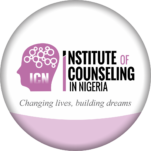Why relationship, marriage and family counseling
If you are seriously concerned about your relationship and wonder if it needs help, chances are it does. Research has shown that couples often wait many years after they first notice problems before seeking couples counseling. This makes couples counseling less likely to be effective, and it can take longer. Long-term resentment can sabotage couples counseling because the desire to have your relationship work is a key to success. So the earlier you make a decision to seek couples counseling the better.
What happens in counseling?
When you meet with the couple’s counselor, you will share information, explore issues, and clarify the difficulties that you have faced. The counselor will encourage you to express yourself more fully and to listen more carefully than you may have been accustomed to doing in your relationship. Important questions will be asked about your communication, the time you spend with each other, and the pattern of closeness you experience the moving toward and away from each other. All of this helps your counselor assess the duration and intensity of your conflict so mutual goals can be established.
Couples counselors often meet with clients individually to gather information about past relationships and life events. These experiences affect relationships and can give clues to strategies for change.
“What will change or be different in your relationship if couples counseling is successful?” Answering this question can help you know when your goal has been met or when couples counseling should end.
You and your partner may participate in activities and communication exercises at home and in the sessions. The goal is to learn skills to enjoy the rewards of a warm, affectionate, and supportive relationship. You will develop strategies to use in the future if difficulties return. Support from the couple’s counselor will help reinforce the changes you learn.
Common problems and You?
Although couples are unique, few problems are new to couple counselors. Sexual issues, money problems, children and parenting issues, religion differences, in-law difficulties, and communication issues are common struggles. Infidelity and cheating, jealousy, balancing work and home, differences in goals and values, and concerns about compatibility all bring couples to counseling.
What if my spouse won’t go?
If your spouse or partner refuses to go to couples’ counseling, it does not mean that your relationship cannot be helped. Couples counseling often starts with one person, with the more reluctant partner joining later. Even if your partner never joins you, it is still possible to make some significant improvements in your relationship.
Do you wish to be trained as a couple’s Counselor?
Enroll and make your dreams come through!
Contact Us @
www.instituteofcounselingng.org
+2349094812983
+2348187114851
admin@instituteofcounseling.org
Or our Professional Counselor
www.intimatesolutionnetwork.com
+2348184575377
References
The University of Texas Work/Life Services & Employee Assistance Program (EAP).
